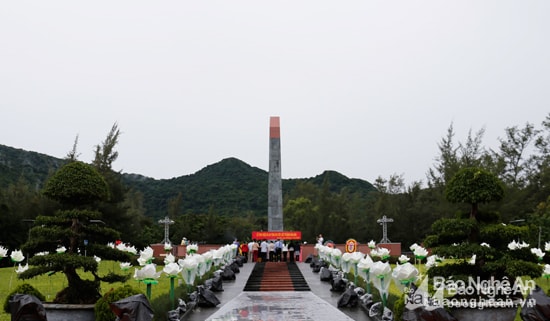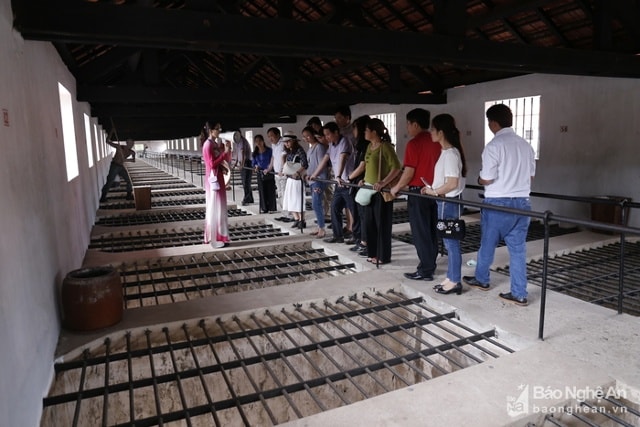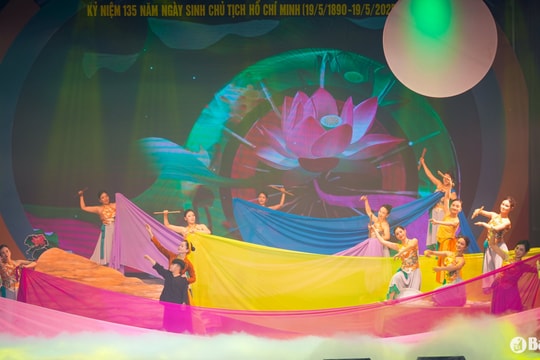Education about gratitude
(Baonghean) - I just had a trip to Con Dao - one of the sacred lands where every July, people from all over the country, without anyone telling them, flock to commemorate the heroic martyrs who sacrificed their lives in the two resistance wars to save the country.
In that crowded crowd, many families brought along children for whom war was just a word they read in literature and books. The tour group went into prisons left over from the French colonial period and the American imperialists. Many years have passed, but this place still retains a gloomy, heavy atmosphere because it has witnessed so much blood and tears.
The cramped cells that once held dozens of people, the cruel torture instruments that once stained red with the blood of many patriotic soldiers and intellectuals. These inanimate objects somehow seem to have souls, as if telling the next generation the story of a dark time.
 |
| Hang Duong Cemetery is a valuable historical relic denouncing the colonial and imperial regime, while also educating the younger generation about tradition. Photo: Duc Anh. |
The narrator was a native woman with tanned skin and a simple voice. Her last story ended by an outdoor well and when she finished, she cried. Everyone felt choked up when she said, “The story I just told is my father’s story. He was also a prisoner in this hell on earth. Many years later, he often woke up in the middle of the night from nightmares. He told me that he dreamed of his comrades who had sacrificed their lives in prison, and dreamed that he was reliving that hellish life. From then until the end of his life, my father never set foot on this place again, although he still lived on the island.”
Perhaps all those who have ever set foot on Con Dao were deeply shocked when visiting the prisons known as hell on earth. Or the saying that the islanders passed on to each other: "On this island, at night when a living person sleeps, three dead people keep watch." Or when walking on the roads in Hang Duong cemetery, seeing rows of chairs lined up on both sides of the aisles and being explained that: Those are chairs placed not only for the living but also for the deceased.
Even though we have heard stories or read many books and documents about the horrors of war and the great sacrifices of previous generations, nothing can be as real and touching as seeing the images and artifacts with our own eyes. In the midst of this peaceful life, if we are not reminded, we can easily forget yesterday and then forget who we are and where we came from.
 |
| Phu Tuong Prison (Con Dao), famous for its "tiger cages", was built in 1940, with an area of over 5,000 square meters including 120 cells with iron bars above, and 60 "sunbathing" rooms without roofs. |
It is difficult to educate our future generations to truly understand the lessons of their ancestors. And it is also difficult to blame them, because they were born in the era of motorbikes, cars, airplanes, computers, smartphones, the internet, and social networks. A peaceful and prosperous life is indeed precious, but it is not certain that people living in this era truly understand and appreciate the value of the life they have.
I will return to Con Dao, next time I will bring my children with me. Because, more than any stories or teachings, I want them to see and experience for themselves. Then they will cultivate in themselves the remembrance and gratitude for those who have fallen for today’s peaceful life.
Hai Trieu


